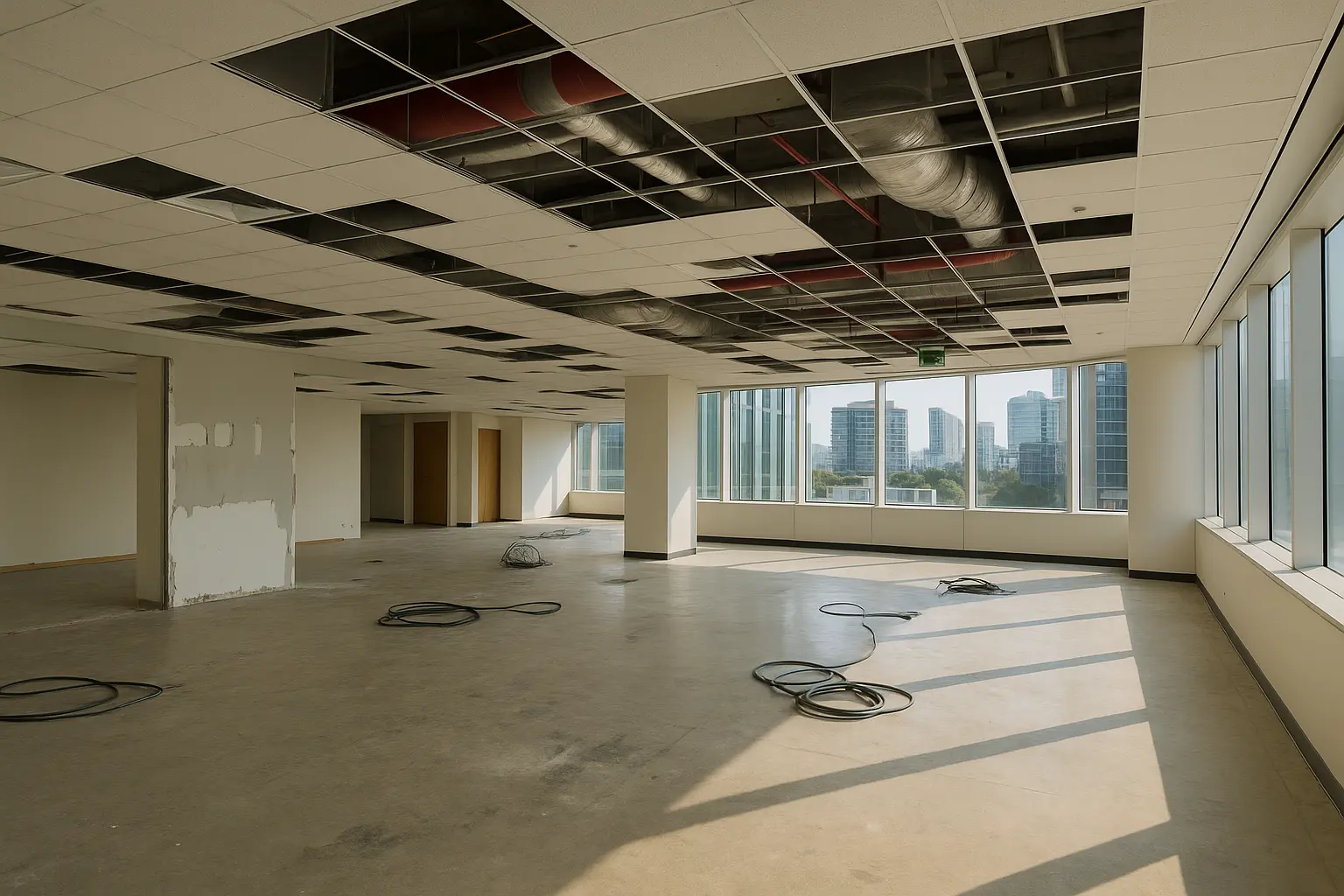Make Goods and Office Decommissioning: What Property Managers Need to Know
The end of a commercial lease isn’t the end of the story.
It’s when the pressure begins.
Office make goods and decommissioning projects are often underestimated. Left to the last minute, they result in blown budgets, missed deadlines, and frustrated landlords. For strata managers and commercial property owners, knowing what to expect and what’s required under lease agreements is essential.
At Allworks Property Services, we support clients through structured, compliant, and cost controlled end of lease transitions. Here’s what you need to know.
What Is a Make Good?
A make good is the tenant’s contractual obligation to return a leased space to its original or agreed upon condition. It typically involves:
- Removing fitouts and reinstating base building finishes
- Electrical and data disconnection
- Fire safety reinstatement
- Waste disposal and cleaning
- Compliance checks (e.g. fire doors, egress)
These requirements are outlined in the lease and vary by asset class, location, and tenant type.
Why Decommissioning Projects Go Wrong
Many office exits are rushed or poorly scoped, leading to:
- Disputes over scope (“base building” often means different things to different people)
- Non compliance issues with fire safety and essential services
- Last minute contractor bookings at premium rates
- Waste disposal problems if not sorted and managed correctly
- Delays that affect releasing, inspections, and landlord satisfaction
Common Lease Clauses to Watch
If you’re managing a lease exit, review clauses related to:
- Make good works or monetary settlement
- Reinstatement of services and finishes
- Fire safety certification
- Timeline obligations (most leases require works to be completed prior to lease expiry)
- Dilapidation reports or condition assessments
Strata Specific Risks
For strata-titled buildings, make goods often involve common property coordination; think fire systems, ceiling tiles, air conditioning, and access to risers. Without an integrated plan, work can breach strata bylaws or delay approvals.
How Allworks Helps: We engage early with building management and strata committees, providing a compliant roadmap and liaising directly with stakeholders to avoid disruptions.
Make Good vs Fitout Reuse
In some cases, the landlord may retain all or part of a fitout. This changes the scope of work significantly and should be agreed to in writing well before handover. We help clients assess whether reuse is viable, cost effective, and compliant.
How Allworks Supports Office Decommissioning
We offer an end to end make good service tailored to NSW and national standards, including:
- Site inspections and scope validation
- Coordination with base building teams and strata
- Decommissioning and removal of services
- Reinstatement works (walls, ceilings, flooring, paint)
- Waste disposal and certification
- Final clean and handover reports
All works are documented and delivered to protect the interests of both tenant and landlord.
The Bottom Line
A rushed make good is a risk no property manager wants. By engaging early, clarifying the lease, and working with an experienced delivery partner, you can control costs, avoid legal disputes, and hand back the property in a condition that protects asset value.
Need help managing an upcoming make good or decommissioning project?
Let’s Talk — Allworks Property Services handles it from start to finish, with full compliance, reporting, and peace of mind.

.png)